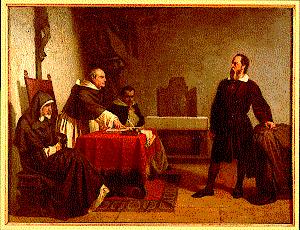 COURSE OBJECTIVES
COURSE OBJECTIVES

| Index: | Objectives | Texts | Topics | Mechanics | Grades | Assignments |
|---|

 TEXTS
TEXTS 
There will be one required paper text:
-- Baird, Forrest E., and Walter Kaufmann, eds. Philosophic Classics, Volume III: Modern Philosophy, Third Edition. Upper Saddle River: Prentice Hall, 1999.
Although the required text is fairly inexpensive, note that most of the required readings are available on-line for perusal, download, or printing; click here to view the course library.
Sources of additional interest, highly recommended:
-- Atherton, Margaret, ed. Women Philosophers of the Early Modern Period.
Indianapolis: Hackett, 1992.
-- Descartes, Rene. Philosophical Essays and Correspondence. Edited by Roger Ariew. Indianapolis: Hackett, 2000.
-- Leibniz, G.W. and Samuel Clarke, Correspondence. Edited by Roger Ariew. Indianapolis: Hackett, 2000.
-- Matthews, Michael R. The Scientific Background to Modern Philosophy: Selected
Readings. Indianapolis: Hackett, 1989.
-- Nadler, Steven M., ed. A Companion to Early Modern Philosophy. Blackwell Publishers, 2002.
Many of these readings are available on-line; click here to view a selection of e-texts in modern philosophy.
Additional materials are specified in the course bibliography.
After a brief, thematic retrieve of the cardinal ideas and issues which survived from the classical period into the renaissance, the course will be structured as follows:
 ASSIGNMENTS AND COURSE
MECHANICS
ASSIGNMENTS AND COURSE
MECHANICS 
Class format will comprise both lecture and discussion periods. Lectures will generally situate problems or positions within historical context; discussion periods will be devoted to exegesis of the texts.
Written assignments: students will be asked to submit four (4) short abstracts (none to exceed two (2) double-spaced typed pages) in the course of the semester. Each abstract should focus on one critical argument/position from each of the major course topics, requiring that one briefly summarize the purport of that argument or position in contemporary idiom. A schedule of topics for the abstracts is provided below; click ahead to view a sample abstract.
Additionally, the course requires submission of an interpretive essay (in the form of a research paper), not to exceed fifteen (15) double spaced typed pages. This assignment asks that you review and analyze the contribution(s) of a major historical figure to some specific field of inquiry (epistemology, metaphysics, ethics, philosophy of mind, etc.). Topics for the interpretive essay should be chosen around spring break, with the paper due at the end of term. See the course bibliography for sources relevant to this assignment.
 EXAMINATIONS AND
GRADES
EXAMINATIONS AND
GRADES 
There will be a final examination in this course.
Final grades will be assigned according to the following distribution of points (total possible points = 200):
(a) The abstracts (18 pts. each): 72 pts.
(b) The interpretive essay: 54 pts.
(c) The final examination: 54 pts.
(d) Attendance & class participation: 20 pts.
and according to the following scale:
176-200 = A
152-175 = B
128-151 = C
104-127 = D
under 104 = F
 SCHEDULE OF TOPICS FOR THE PHILOSOPHICAL
ABSTRACTS
SCHEDULE OF TOPICS FOR THE PHILOSOPHICAL
ABSTRACTS 